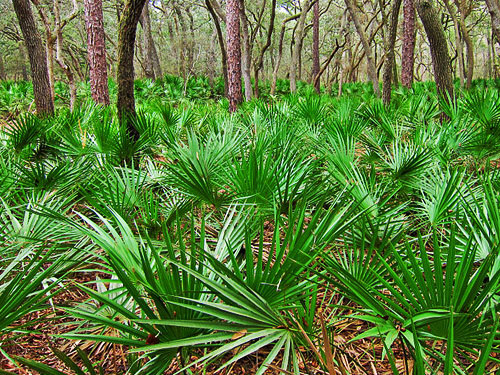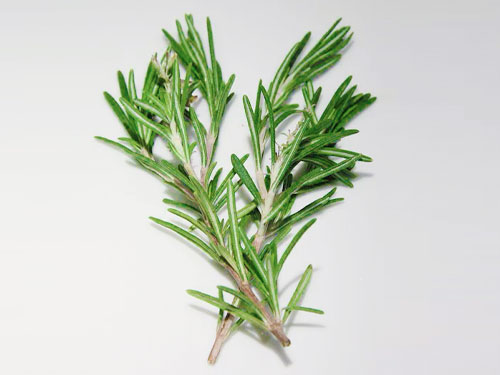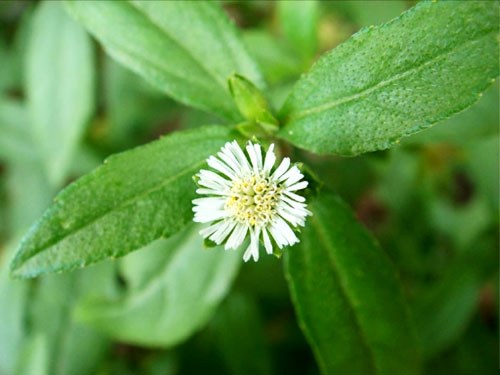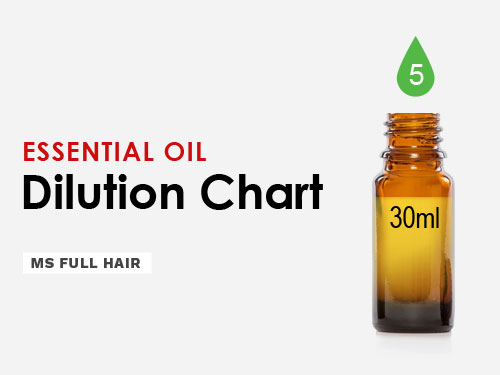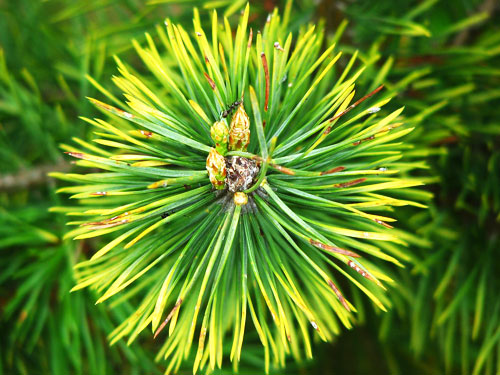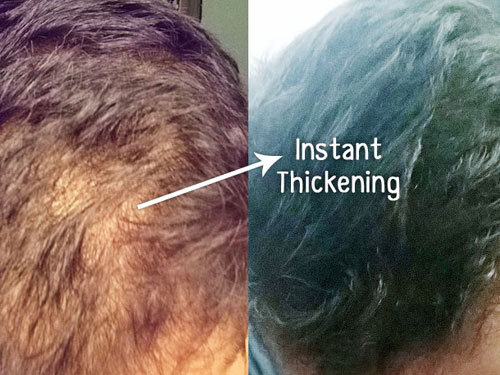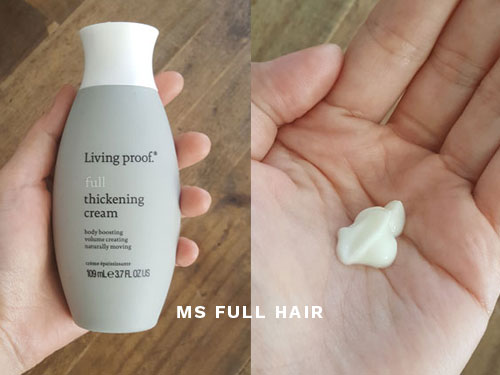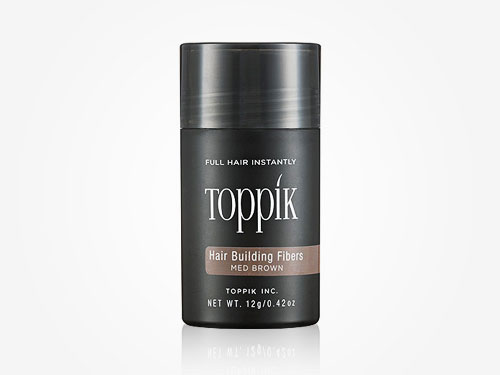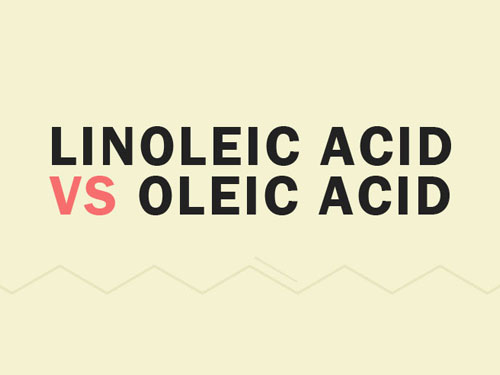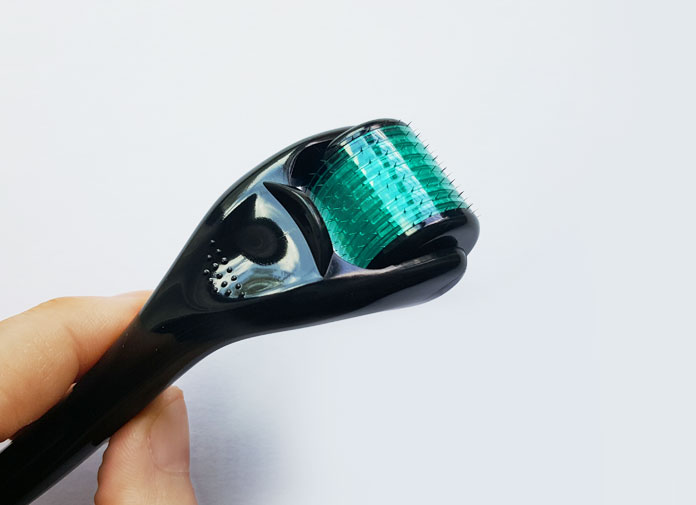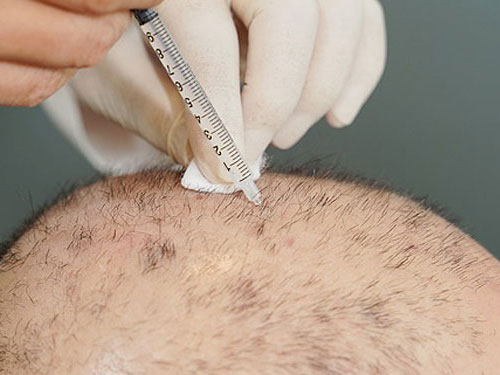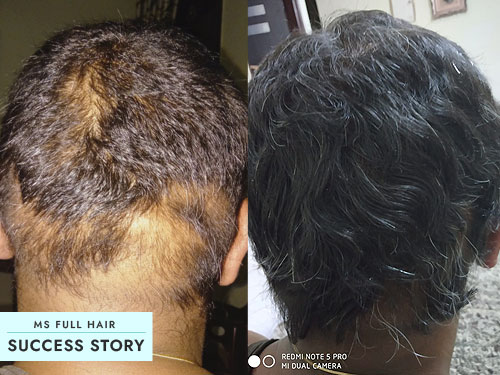Are you trying to find the best carrier oil for hair growth?
One of the scientific ways you can make a better decision about using carrier oil is by looking at the content of linoleic and oleic acid.
All carrier oils you use for hair and skin contain linoleic acid, oleic acid or often both.
Here, you will learn about what these acids are and which one you actually need for the purpose of stopping hair loss and promoting healthy hair growth.
Structures of Linoleic acid and oleic acid
Both linoleic acid and oleic acid are fatty acids found in vegetable and plant-based oils.
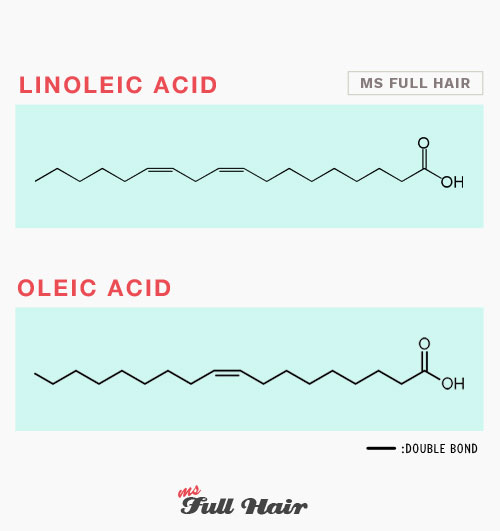
Linoleic acid is a polyunsaturated fatty acid and is also known as an omega 6 fatty acid.
Oleic acid is a monounsaturated fatty acid and a type of omega 9 fatty acid.
Both fatty acids are unsaturated, meaning they stay liquid at room temperature.
If you look at linoleic acid, the structure contains 2 double bonds, which makes it “poly”unsaturated (= 2+ double bonds). On the other hand, oleic acid only has 1 double bond, thus a “mono”unsaturated fat.
(What differentiates poly vs monounsaturated is the number of double bonds in the chemical structures.)
Some of the carrier oils high in linoleic acid include safflower and grape seed oil. Oils that contain high amount of oleic acid are olive oil and avocado oil.
You can learn more about benefits of omega 3 6 9 for hair here.
Linoleic acid vs oleic acid for hair – Which one should I use?
Here are our suggestions based on a number of research studies:
For dandruff, itchy, and flaky scalp, use carrier oils high in linoleic acid
A 2005 study (1) shows that the more oleic acid present on the scalp, the higher chance a person will experience dandruff and seborrheic dermatitis.
Oleic acid is produced on the surface of our skin by Malassezia fungus. This yeast breaks down our sebum and turns it into oleic acid.
While this is a naturally occurring process for all of us, people with dandruff tend to be more sensitive to oleic acid. This in turn causes irritation and inflammatory reactions, resulting in dandruff, redness, itchiness, and dry scalp (the most unwanted outcome from all these is hair loss).
So in order to keep the amounts of oleic acid down to minimal levels, you’ll want to use carrier oils high in linoleic acid such as safflower oil, grapeseed oil and evening primrose oil.
For oily scalp, use carrier oils high in linoleic acid
If you have oily scalp, you have a higher chance of getting clogged follicles, which often causes what’s called “acne scalp.”
If it’s left untreated, the excess oil will eventually interfere with normal hair growth, because of ongoing residue build-up on the scalp. This can cause infected hair follicle from unwanted fungus or bacterial growth on the affected areas.
Also, a study (2) shows that people who have acne-prone skin (oily skin) tend to have lower levels of linoleic acid in the sebum, and scientists believe that low linoleic acid is one of the major contributing factors to cause acne.
So if you have oily scalp, opt for carrier oils that are high in linoleic acid such as safflower oil, sunflower oil and evening primrose oil.
For brittle and frizzy hair, use carrier oils high in oleic acid
Oleic acid makes carrier oils denser and heavier than linoleic oil. This rich texture provides a nourishing effect for brittle hair and helps control frizz effectively.
One study tested a variety of Brazilian oils, in which many of them are rich in oleic acid (Palm olein oil and buruti oil to name a few). The result shows that these oils had amazing moisturizing effects and added shine while reducing split ends.
Carrier oils high in oleic acid and desirable for brittle and frizzy hair treatments include olive oil and avocado oil.
For stimulating hair growth, both linoleic acid and oleic acid are great options
If you don’t have any of the above symptoms and are simply looking for good carrier oils for stopping hair loss and encouraging hair growth, you can go with either one.
A study shows that BOTH linoleic acid and oleic acid have a property of blocking 5a reductase enzyme activities (aka hair growth inhibitor).
This means that both fatty acids can effectively lower DHT hormones in the scalp by inhibiting the 5a reductase enzyme from binding to testosterone. This ensures that the level of DHT hormones stays low and prevents hair follicle miniaturization (one of the main causes of androgenetic alopecia or male and female pattern baldness).
Thus, you can use oils that are either high in oleic or linoleic acid. Or even better, carrier oils such as jojoba oil and argan oil have good balance of oleic and linoleic acid.
Finally, mixing carrier oils with essential oils make them a lot more effective for stimulating hair growth. One of our favorite essential oils is peppermint essential oil.
The List: Linoleic acid and oleic acid content of oils
See our carrier oil for hair growth recommendations – Linoleic acid and oleic acid (* indicates great carrier oils for topical application):
| Oils | Linoleic Acid | Oleic Acid |
|---|---|---|
| Safflower oil * | 75% - 80% | 11.5% |
| Evening primrose oil * | 65% - 80% | 05% - 11% |
| Poppy seed oil | 70% - 72% | 11% - 20% |
| Grapeseed oil * | 70% - 73% | 15% |
| Rosehip oil * | 42% - 60% | 14% -16% |
| Argan oil * | 35% - 37% | 43% - 46% |
| Sunflower oil | 66% - 72% | 16% - 28% |
| Pumpkin seed oil * | 42% - 60% | 24% - 41% |
| Hemp seed oil | 54% - 60% | 09% - 12% |
| Almond oil * | 25% - 30% | 60% - 75% |
| Olive oil * | 04% - 21% | 55% - 83% |
| Emu oil * | 01% - 02% | 47% |
| Marula oil * | 04% - 07% | 70% - 80% |
| Wheat germ oil | 30% - 57% | 12% - 39% |
| Sesame oil * | 35% - 50% | 35% - 50% |
| Rice bran oil | 33% - 34% | 38% - 43% |
| Rapeseed oil | 20% | 63% |
| Peanut oil | 32% | 71% |
| Coconut oil * | 02% | 06% |
| Corn oil | 59% | 27% |
| Cottonseed oil | 54% | 19% |
| Soybean oil | 48% - 58% | 17% - 30% |
| Walnut oil | 45% - 60% | 21% - 35% |
| Pistachio oil | 33% | 60% |
| Canola oil | 19% - 21% | 62% |
| Palm oil | 09% - 10% | 37% - 40% |
| Macadamia Oil | 02% | 60% |
| Hazelnut oil | 12% | 79% |
| Apricot kernel oil | 20% - 35% | 55% - 70% |
| Tamanu oil * | 30% - 38% | 34% - 41% |
| Castor oil * | 04% | 03% |
| Flaxseed oil | 16% | 21% |
| Jojoba oil * | 0% - 05% | 05% - 15% |
(Sourced from wiki, news-medical, Esoteric Oils, US National library of medicine)
Extra
Marula oil is the most trending oil right now for hair and skin (especially this brand).
Made from fruits of the marula tree native in Africa, marula oil is rich in antioxidant properties with vitamin C and vitamin E. It is known as a very gentle oil with a light and non-oily texture. Plus, it has a great absorption rate.
When it comes to oleic and linoleic acid content, marula oil contains 70-78% of oleic acid (thus great for sealing moisture) and 4-7% of linoleic acid.

